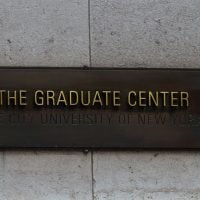Deadline: 31-Aug-2024
The Public Affairs Section (PAS) at U.S. Embassy Tunis of the U.S. Department of State (hereafter referred to as “PAS Tunis”) is pleased to announce this Notice of Funding Opportunity (NOFO) through its Public Diplomacy Small Grants Program.
Purpose
- PAS Tunis invites proposals for programs that strengthen cultural, educational, professional, and scientific ties between the United States and Tunisia through programming that highlights shared values, strengthens people-to-people ties and institutional linkages, and promotes bilateral cooperation. Competitive proposals should focus on at least one grant priority area outlined below. Proposals that do not address one of the grant priority areas outlined below will not be considered for funding. All proposed programs must include an American cultural element or connection with American expert(s), organization(s), or institutions in a specific field that will promote increased understanding of U.S. policies, values, and perspectives and incorporate cross-cutting approaches to diversity, equity, inclusion, and accessibility (DEIA).
- Examples of PAS Tunis PD Small Grant proposals include, but are not limited to:
- Subject-matter expert, academic, and professional lectures, seminars, and speaker programs that include U.S. speakers/experts.
- Programs that strengthen relationships and linkages between U.S. colleges/universities and Tunisian higher education institutions.
- Educational, artistic, and cultural programs, including programs that strengthen English language teaching and learning, musical and/or dance workshops, master classes, and performances, live theatre performances, art exhibitions, and culinary diplomacy initiatives.
- Programs that promote economic empowerment, entrepreneurship, diversity, inclusion, and accessibility, and/or that address environmental and urban development challenges.
- Cultural heritage conservation and preservation programming, including through the use new technologies, such as VR technology.
- Note: PD funding cannot be used to support construction-related activities.
Priority Areas
- Grant proposals should address at least one of the four Public Affairs priority areas outlined below:
- Strengthening civil society and fostering shared interests in democracy, good governance, rule of law, and civic participation. Projects targeting this priority area could focus on advocacy and inclusion efforts for disabled persons and other disadvantaged groups, promoting media freedom and literacy, countering disinformation, strengthening civil society organizations, promoting local cultural heritage, traditional and modern art forms, and other forms of creative expression, and projects that engage emerging leaders in any of these fields through linkages with U.S. counterparts.
- Advancing inclusive economic prosperity through programs aimed at helping Tunisian citizens, particularly youth, women, disabled persons, first generation Tunisian university students, and geographically marginalized populations fully benefit from economic development. Programs could focus on topics such as entrepreneurship, soft skills training, hospitality, ecotourism, environmental tourism, and creative economy industries, job creation, intellectual property rights and protection, corporate social responsibility, access to finance, and university linkage programs focused on such topics.
- Fostering innovation together to address climate change and urban development challenges, conservation, science, and technology. Programs could focus on promoting STEM education and/or encouraging youth to pursue STEM careers, or on topics such as environmental conservation, climate change mitigation, technological innovations to tackle challenges related to climate change and urbanization (e.g., water management, waste management, urban planning, mitigating impact of built environment on cultural heritage preservation and green spaces, etc.) and involving communities in developing solutions to such challenges, and linkage programs with U.S. universities focused on such topics.
- Strengthening the capacity of U.S. government exchange program alumni through programming in the priority areas listed above and bolstering engagement between alumni and the Embassy. Programs could include tailored training for alumni in areas such as project management, grant writing, business plan development and pitching startup ideas, developing and executing community service projects, advocacy for civic projects and policies, leadership, public speaking, DEIA-related training, and other soft skills training, including English language training and/or community service projects or other projects benefitting PAS Tunis priority audiences implemented by exchange program alumni.
Funding Information
- Ceiling of Individual Award Amounts: $250,000
- Floor of Individual Award Amounts: $10,000
- Anticipated Period of Performance: 9-12 months
- Anticipated Program Start: October 1, 2024.
Participants and Audiences
- Proposals must focus on one of the priority areas specified above and target at least one of PAS Tunis’ key audiences, including: youth (14-35 years old), first-generation university/higher education students, alumni of U.S. government-funded exchange program, women, disabled persons, and other minority or geographically marginalized groups, including audiences outside of the Greater Tunis area, educators, media practitioners, policy makers, civil society organizations, and entrepreneurs and innovators. In addition, U.S. Embassy Tunis seeks creative proposals that build upon existing partnerships between U.S. organizations and Tunisian counterparts, as well as those that create new partnerships and expand operational capabilities of existing organizations.
Eligibility Criteria
- U.S. Embassy Tunis Public Affairs Section encourages applications from the following entities registered in the United States or Tunisia with at least two years of programming experience. (Experience should be documented in the organization’s proposal.)
- Not-for-profit organizations, including think tanks and civil society/non-governmental organizations
- Non-profit or governmental educational institutions
- Governmental institutions
- Individuals may also apply
- Applicants must demonstrate expertise in one or more of the following subject areas: people-to-people exchanges, cultural or academic programming, international cooperation, or institution-to-institution partnerships in a foreign setting.
- Applicants must also demonstrate competency to manage all financial aspects of the project, including participant costs and transparent arrangements of sub-grant relationships with partner organizations, if applicable.
- A copy of the organization’s registration should be provided with the proposal application. U.S.-based organizations should submit a copy of their IRS determination letter. Tunisian-based organizations should submit a copy of their certificate of registration from the appropriate government organization.
- For-profit or commercial entities and organizations are not eligible to apply.
Ineligible
- The following types of programs are not eligible for funding:
- Programs relating to partisan political activity;
- Programs that do not contain people-to-people exchanges or interactions;
- Charitable or development activities;
- Construction programs;
- Programs that support specific religious activities;
- Fund-raising;
- Lobbying for specific legislation or programs;
- Scientific research;
- Programs intended primarily for the growth or institutional development of the organization;
- Programs that duplicate existing programs.
For more information, visit Grants.gov.









































